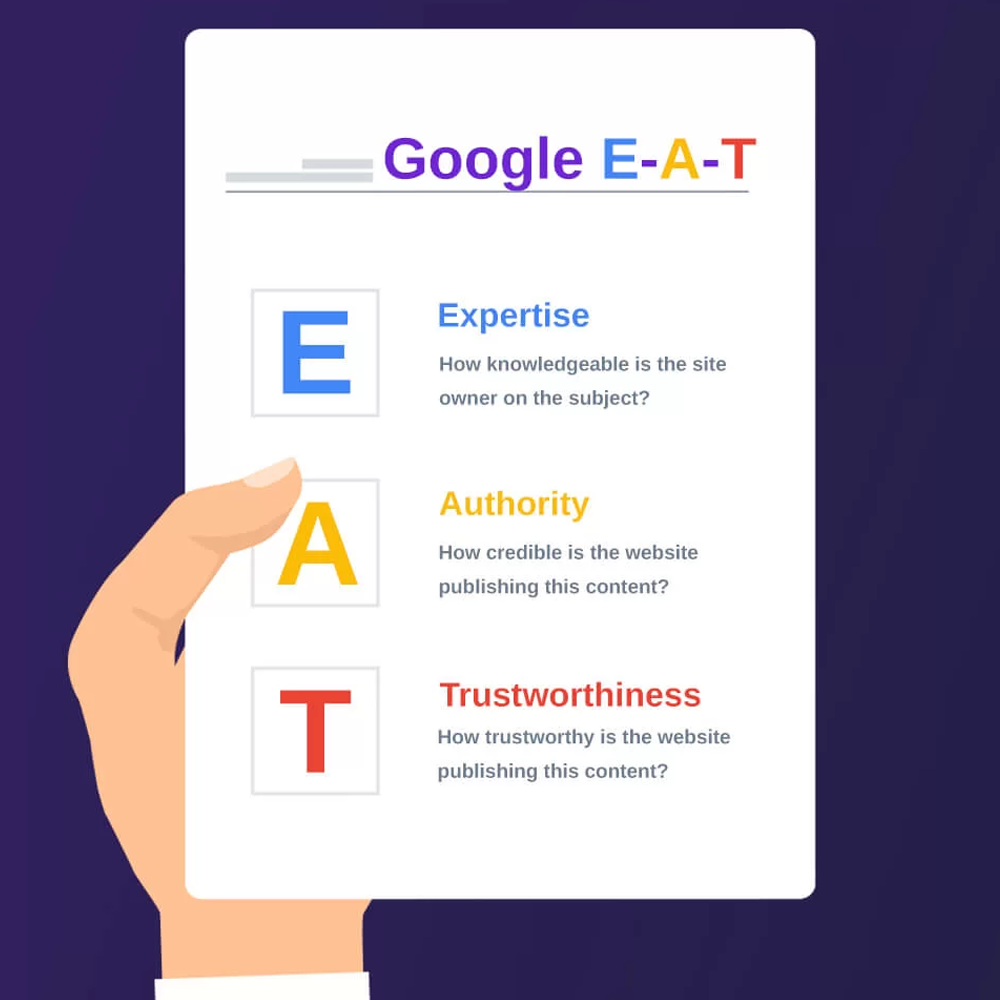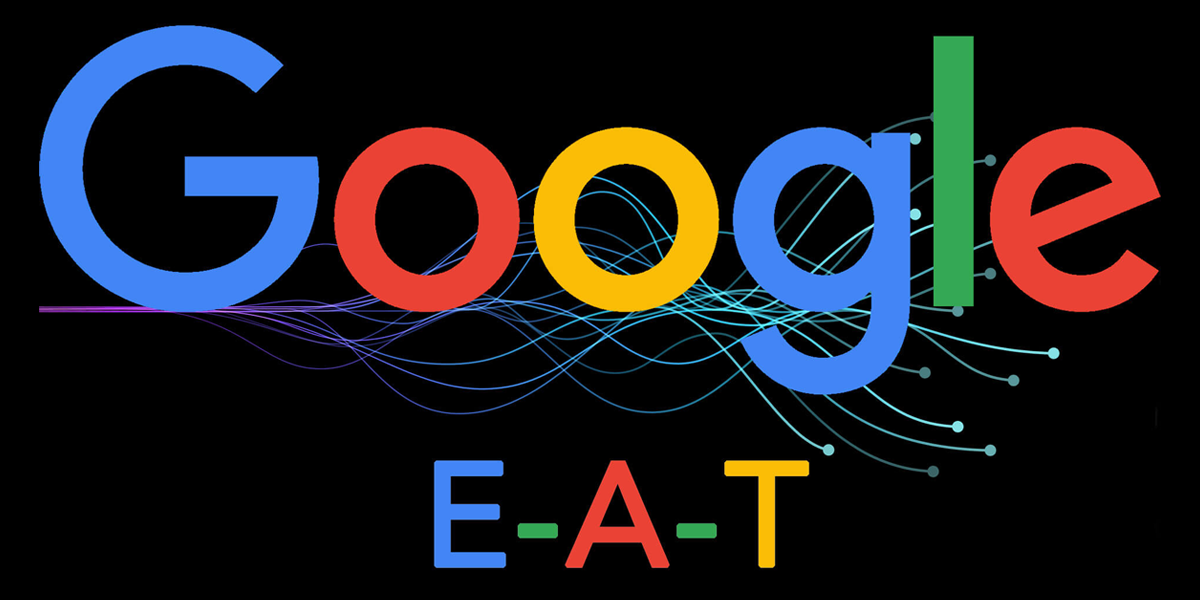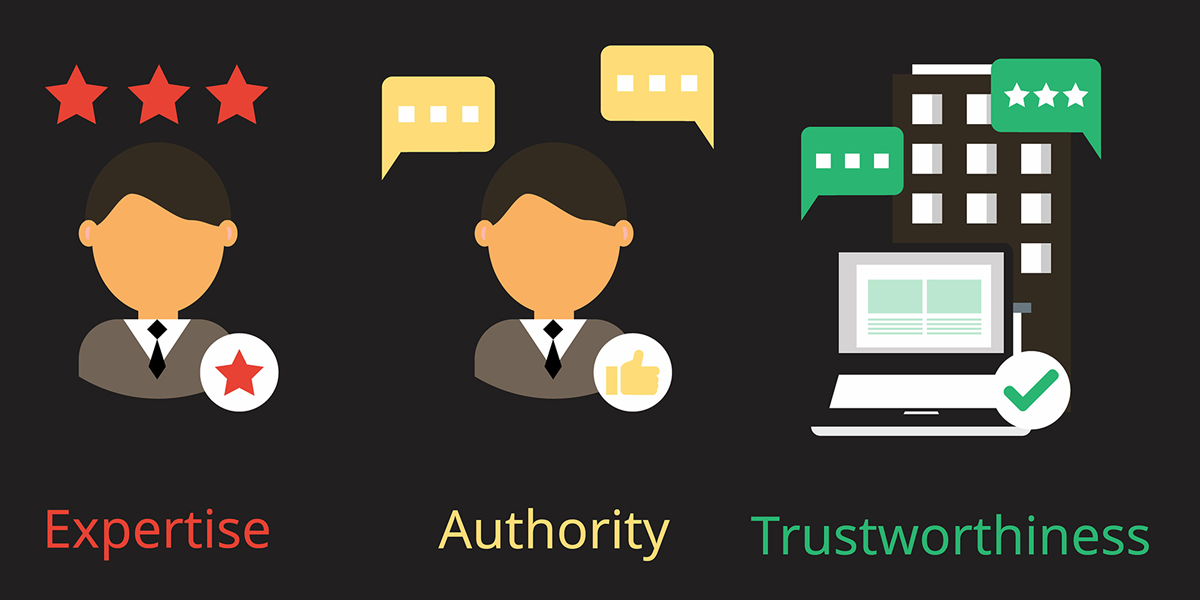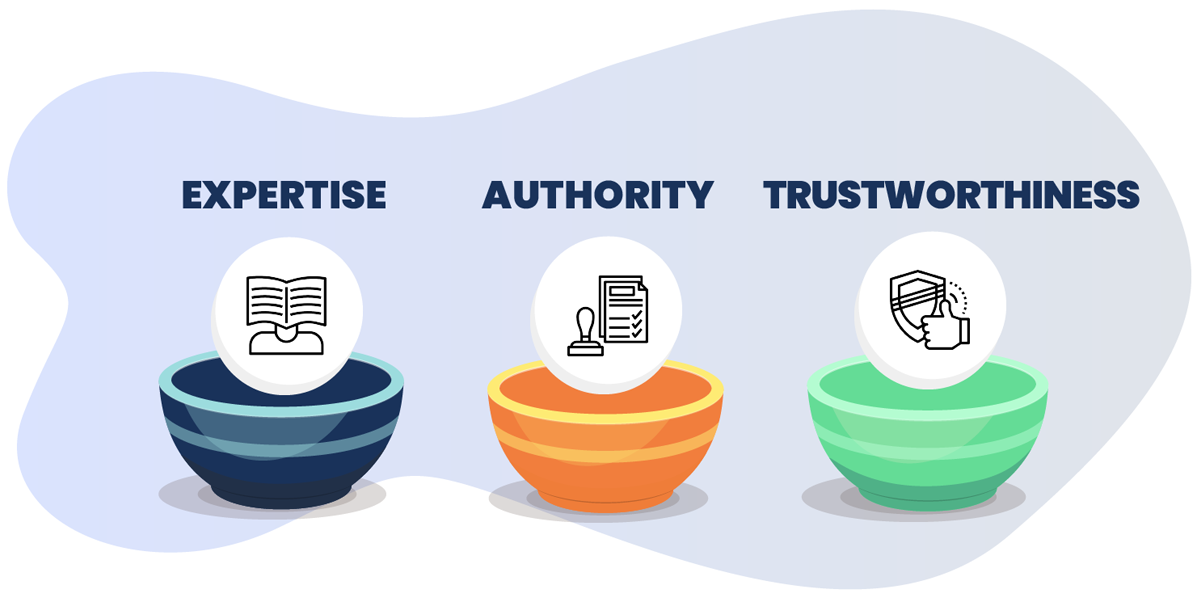What is E-A-T and Why It Matters for SEO?

Search Engine Optimization (SEO) is a complex field that involves numerous strategies and techniques to increase the visibility, traffic, and conversions of websites. While several ranking factors search engines like Google use to determine the relevance and authority of web pages, one of the most important ones is E-A-T. In this article, we will explore what E-A-T is, how it works, and why it matters for SEO.
E-A-T – Introduction
E-A-T is an acronym that stands for Expertise, Authority, and Trustworthiness. It is a set of guidelines that Google uses to evaluate the quality and reliability of web pages, particularly those that provide information about health, finance, or other sensitive topics. E-A-T is a crucial ranking factor that affects the visibility and credibility of websites, as it helps search engines determine which content is most relevant and useful for users.

E-A-T – Introduction
What is E-A-T?
E-A-T is a concept that was introduced in Google’s Quality Rater Guidelines, which are a set of instructions that human evaluators use to assess the quality and relevance of search results. According to Google, E-A-T is a vital factor in determining the quality of web pages, particularly those that deal with topics related to YMYL (Your Money or Your Life), such as health, finance, or legal advice.
E-A-T is not a specific algorithm or a ranking factor on its own, but rather a set of criteria that Google uses to evaluate the quality and trustworthiness of web pages. Websites that demonstrate high levels of E-A-T are more likely to rank higher in search results, as they are perceived as more reliable and authoritative sources of information.
The Components of E-A-T
E-A-T consists of three main components:
Expertise
Expertise refers to the level of knowledge and skills that an author or a website has in a particular field or subject. Google evaluates expertise based on factors such as the author’s qualifications, education, professional experience, and peer recognition. For websites, expertise is determined by the content’s accuracy, depth, and relevance to the user’s search query.
Authority
Authority refers to the level of influence and reputation that a website or an author has in a particular field or industry. Google evaluates authority based on factors such as the website’s backlink profile, social media presence, online reviews, and industry awards or recognitions.
Trustworthiness
Trustworthiness refers to the level of reliability and credibility that a website or an author has in providing accurate and unbiased information. Google evaluates trustworthiness based on factors such as the website’s security and privacy policies, user engagement metrics, customer reviews, and compliance with industry standards and regulations.

The Components of E-A-T
Why E-A-T Matters for SEO
E-A-T is an essential factor in determining the quality and relevance of web pages, particularly those that deal with YMYL topics. Websites that demonstrate high levels of E-A-T are more likely to rank higher in search results, as they are perceived as more reliable and authoritative sources of information.
E-A-T is particularly important for businesses and organizations that offer services or products related to health, finance, or other sensitive topics. By demonstrating high levels of expertise, authority, and trustworthiness, these websites can build trust and credibility with their audience, which can ultimately lead to higher conversions and customer loyalty.
Moreover, E-A-T is also essential for websites that rely on advertising or sponsored content to generate revenue. Google has recently updated its guidelines to require websites to disclose any sponsored content or advertising clearly and prominently. Failure to comply with these guidelines can result in penalties or even deindexing from search results.
How to Improve Your E-A-T Score
Improving your E-A-T score requires a holistic approach that involves several strategies and techniques. Here are some tips to help you improve your E-A-T score:
Build your expertise
Demonstrate your expertise in your field by creating high-quality, accurate, and relevant content that provides value to your audience. Use credible sources and cite your references to support your claims. Consider partnering with experts or influencers in your field to add more credibility to your content.
Build your authority
Establish your authority in your industry by building a strong backlink profile, engaging with your audience on social media, and participating in industry events and conferences. Use customer reviews and testimonials to showcase your reputation and trustworthiness.
Build your trustworthiness
Build your trustworthiness by ensuring that your website is secure, transparent, and compliant with industry standards and regulations. Use clear and concise language, and avoid making exaggerated claims or false promises. Provide easy-to-access customer support and be responsive to feedback and inquiries.

How to Improve Your E-A-T Score
Best Practices for E-A-T Optimization
Here are some best practices to follow when optimizing your E-A-T:
Create high-quality content
Focus on creating content that is accurate, informative, and relevant to your audience. Use a variety of media formats, such as videos, infographics, and podcasts, to make your content more engaging and accessible. Use headers, bullet points, and other formatting techniques to make your content more scannable and easy to read.
Optimize your website
Ensure that your website is user-friendly, fast, and mobile-responsive. Use clear and descriptive URLs, meta descriptions, and title tags to help search engines understand the content of your pages. Use structured data and schema markup to help search engines display your content more prominently in search results.
Build your reputation
Build your reputation by creating a strong online presence, engaging with your audience on social media, and participating in industry events and conferences. Use customer reviews and testimonials to showcase your credibility and trustworthiness. Use backlinks from authoritative websites to build your authority.

Best Practices for E-A-T Optimization
Common Myths About E-A-T
There are several myths and misconceptions about E-A-T that can confuse website owners and SEO practitioners. Here are some of the most common ones:
E-A-T is a specific algorithm or ranking factor
E-A-T is not a specific algorithm or ranking factor on its own, but rather a set of criteria that Google uses to evaluate the quality and relevance of web pages. E-A-T is just one of many factors that Google considers when ranking web pages, and it can interact with other factors in complex ways.
E-A-T is only relevant for YMYL topics
While E-A-T is particularly important for websites that deal with YMYL topics, it is relevant for all websites that aim to provide high-quality, reliable, and useful information to their audience. E-A-T can also be relevant for websites that rely on advertising or sponsored content to generate revenue.
E-A-T is easy to manipulate
While it is possible to manipulate some aspects of E-A-T, such as by buying backlinks or using fake reviews, these practices are unethical and can result in penalties or even deindexing from search results. The best way to improve your E-A-T score is to focus on creating high-quality content, building your reputation, and providing value to your audience.

Common Myths About E-A-T
Conclusion
In conclusion, E-A-T is a crucial concept that website owners and SEO practitioners must understand to succeed in online marketing. By following the tips and best practices outlined in this article, you can improve your E-A-T score and increase your visibility, traffic, and conversions. Remember that E-A-T is not a static or fixed concept, but rather a dynamic and evolving one that requires continuous effort and improvement. By staying up-to-date with the latest trends and guidelines in your industry, you can stay ahead of the competition and provide the best possible experience to your audience.
FAQ
What does E-A-T stand for?
E-A-T stands for Expertise, Authoritativeness, and Trustworthiness.
What is the importance of E-A-T for SEO?
E-A-T is important for SEO because it is a set of criteria that Google uses to evaluate the quality and relevance of web pages. By improving your E-A-T score, you can increase your visibility, traffic, and conversions.
How does Google evaluate E-A-T?
Google evaluates E-A-T based on various factors, such as the expertise and reputation of the website and its authors, the quality and accuracy of the content, the user experience and design of the website, and the overall online reputation of the website and its brand.
What is the difference between E-A-T and E-E-A-T?
E-E-A-T stands for Expertise, Authoritativeness, Trustworthiness, and Expertise. The main difference between E-A-T and E-E-A-T is that E-E-A-T emphasizes the importance of expertise in addition to the other factors.
What is the role of E-A-T in YMYL pages?
E-A-T is particularly important for websites that deal with Your Money or Your Life (YMYL) topics, such as health, finance, and legal advice. This is because these topics have a significant impact on the well-being and safety of the audience, and therefore require a higher level of expertise, authority, and trustworthiness.
How can I improve the E-A-T of my website?
To improve your E-A-T score, you should focus on building your expertise, authority, and trustworthiness, creating high-quality content, optimizing your website, and building your reputation.
What are the best practices for optimizing E-A-T?
Some of the best practices for optimizing E-A-T include creating high-quality and relevant content, building a strong online reputation through social media and online reviews, optimizing your website for user experience and mobile-friendliness, and improving your website’s security and privacy.
How does E-A-T impact content marketing?
E-A-T can have a significant impact on content marketing because it affects how search engines and users perceive the quality and relevance of your content. By following E-A-T guidelines and best practices, you can create content that is more likely to rank well in search results and resonate with your audience.
What are some examples of high E-A-T websites?
Some examples of high E-A-T websites include authoritative and reputable sources of information, such as government websites, academic institutions, and industry associations. Popular news websites and online marketplaces with strong brand reputations can also have high E-A-T.
How can E-A-T affect local SEO?
E-A-T can affect local SEO by influencing the visibility and ranking of local businesses in search results. By improving their E-A-T score, local businesses can increase their chances of appearing in local search results and attracting more local customers. This can be achieved through various tactics, such as creating high-quality and locally relevant content, optimizing their Google My Business listing, and building positive online reviews and ratings.

